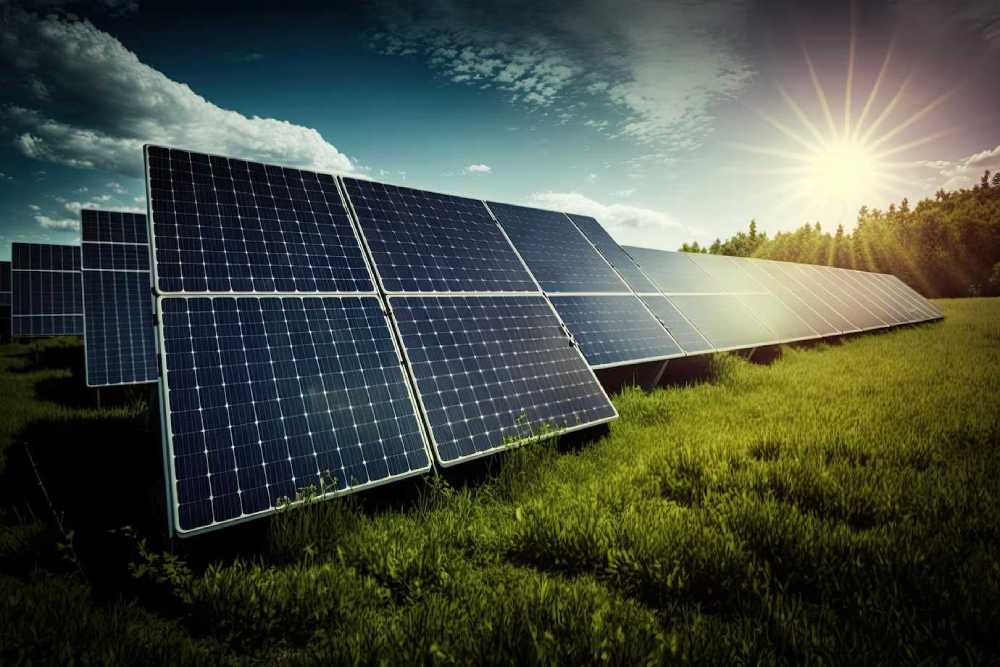As energy costs rise and environmental concerns become more pressing, solar power is rapidly becoming a popular choice for homeowners looking to reduce their energy bills and carbon footprint. With numerous options available in the market, selecting the right solar panels for your home can seem daunting. At Rubby Instruments Nigeria, we specialize in high-quality solar panels and power electronics solutions, and we represent industry leaders like IREM Spa (Italy) and DELTA Electric (Turkey). Here’s a comprehensive guide to help you choose the ideal solar panels for your home.
1. Types of Solar Panels
There are three main types of solar panels available in the market, each with distinct advantages and disadvantages:
- Monocrystalline Solar Panels These panels are made from single-crystal silicon, making them highly efficient at converting sunlight into electricity. They are known for their durability and sleek appearance. While they tend to be more expensive than other options, they are ideal for homes with limited roof space because of their high efficiency.
- Polycrystalline Solar Panels Polycrystalline panels are made from multiple silicon crystals, making them less efficient than monocrystalline but also more affordable. They are a great option if you have a larger roof space and are looking for a cost-effective solution.
- Thin-Film Solar Panels Thin-film panels are lightweight and flexible, making them versatile in terms of installation. While they are generally less efficient and require more space to generate the same amount of power, they perform well in low-light conditions and are a good option for homes with unique roof structures or shading issues.
2. Efficiency and Output
Efficiency refers to how well a solar panel converts sunlight into electricity. High-efficiency panels, like monocrystalline, can produce more energy in limited space. However, if your roof offers plenty of space, polycrystalline or thin-film panels may suffice, even if they are slightly less efficient. It’s crucial to calculate how much energy your household consumes and compare that to the output capabilities of various panel options.
3. Climate and Environmental Conditions
Nigeria’s sunny climate makes it an excellent location for solar energy production, but it’s important to consider other environmental factors. For example, if your home is in a coastal area or experiences frequent cloud cover, you might want to invest in panels that perform well in diffused sunlight, like thin-film solar panels.
At Rubby Instruments Nigeria, we can help you select panels that are built to withstand the specific environmental conditions of your region, ensuring optimal performance and longevity.
4. Durability and Warranty
Solar panels are a long-term investment, and durability is key. Look for panels that offer long warranties (usually between 20 to 25 years), as this indicates the manufacturer’s confidence in the product’s performance over time. Panels should also be tested for resistance to harsh weather conditions, such as heavy rain, high winds, and extreme heat, which are common in Nigeria.
Both IREM Spa and DELTA Electric panels offered by Rubby Instruments come with extensive warranties and are built to last, providing reliable performance year after year.
5. Installation and Maintenance
Once you’ve chosen the right solar panels for your home, proper installation is essential to ensure their efficiency. You will need certified technicians to handle the installation process. At Rubby Instruments, we not only provide top-quality solar panels but also offer technical training and support for installation and maintenance. Regular maintenance will ensure your panels operate at peak efficiency throughout their lifespan.
6. Budget Considerations
While solar panels require an upfront investment, they can save you money in the long run by reducing or eliminating your electricity bills. When choosing solar panels, consider both the initial cost and the long-term savings. High-efficiency panels like monocrystalline may cost more initially but can result in greater energy savings over time.
Conclusion
Choosing the right solar panels for your home depends on several factors, including your energy needs, budget, available roof space, and local environmental conditions. At Rubby Instruments Nigeria, we are committed to helping you make the best choice by providing high-quality panels and solutions tailored to your specific requirements. Whether you’re looking for premium monocrystalline panels from IREM Spa or affordable polycrystalline panels from DELTA Electric, we have the right solution for you.
Ready to make the switch to solar energy? Contact Rubby Instruments Nigeria today and let us guide you through the process of powering your home with sustainable, reliable solar energy.



